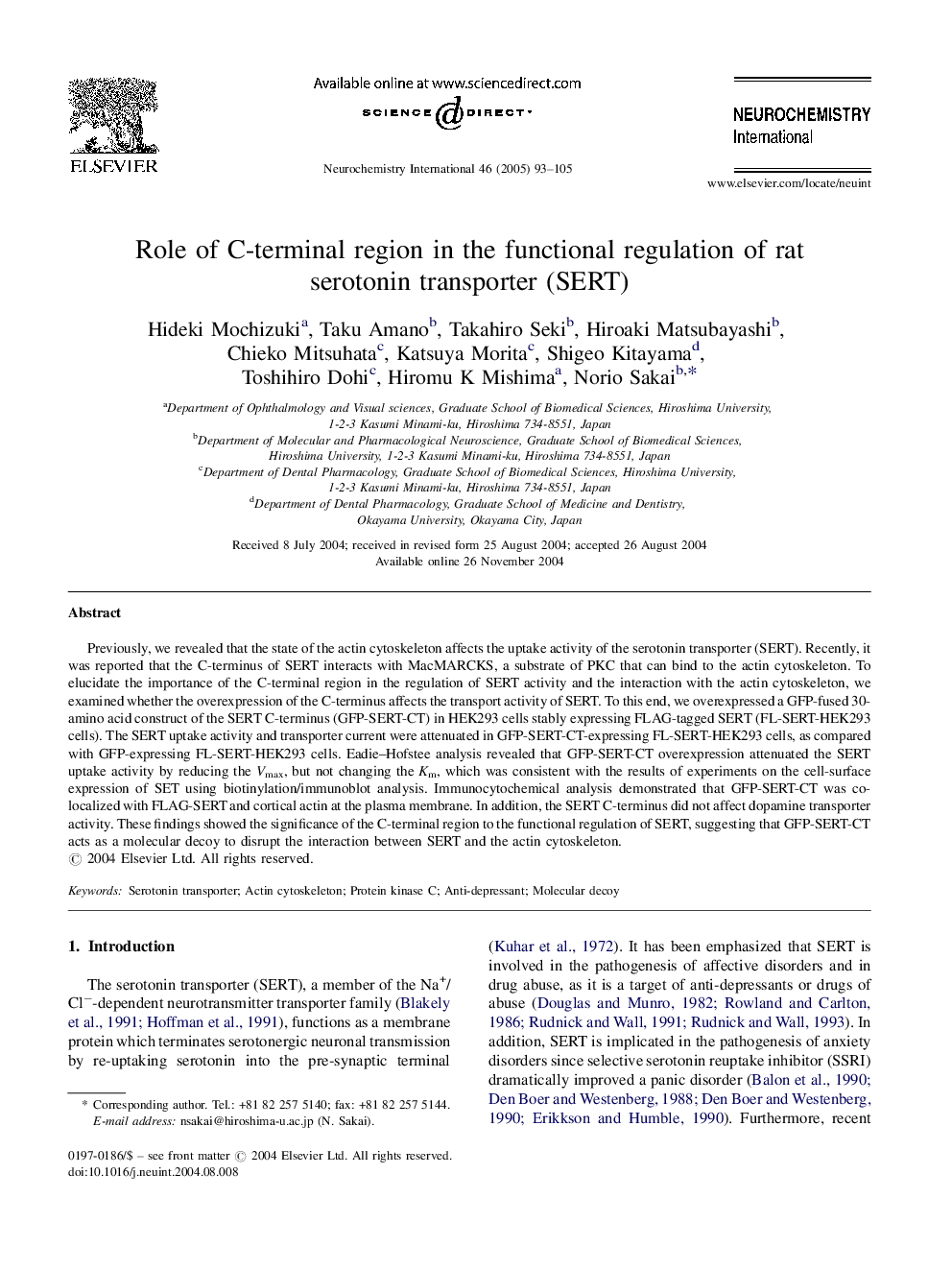| Article ID | Journal | Published Year | Pages | File Type |
|---|---|---|---|---|
| 10958783 | Neurochemistry International | 2005 | 13 Pages |
Abstract
Previously, we revealed that the state of the actin cytoskeleton affects the uptake activity of the serotonin transporter (SERT). Recently, it was reported that the C-terminus of SERT interacts with MacMARCKS, a substrate of PKC that can bind to the actin cytoskeleton. To elucidate the importance of the C-terminal region in the regulation of SERT activity and the interaction with the actin cytoskeleton, we examined whether the overexpression of the C-terminus affects the transport activity of SERT. To this end, we overexpressed a GFP-fused 30-amino acid construct of the SERT C-terminus (GFP-SERT-CT) in HEK293 cells stably expressing FLAG-tagged SERT (FL-SERT-HEK293 cells). The SERT uptake activity and transporter current were attenuated in GFP-SERT-CT-expressing FL-SERT-HEK293 cells, as compared with GFP-expressing FL-SERT-HEK293 cells. Eadie-Hofstee analysis revealed that GFP-SERT-CT overexpression attenuated the SERT uptake activity by reducing the Vmax, but not changing the Km, which was consistent with the results of experiments on the cell-surface expression of SET using biotinylation/immunoblot analysis. Immunocytochemical analysis demonstrated that GFP-SERT-CT was co-localized with FLAG-SERT and cortical actin at the plasma membrane. In addition, the SERT C-terminus did not affect dopamine transporter activity. These findings showed the significance of the C-terminal region to the functional regulation of SERT, suggesting that GFP-SERT-CT acts as a molecular decoy to disrupt the interaction between SERT and the actin cytoskeleton.
Related Topics
Life Sciences
Biochemistry, Genetics and Molecular Biology
Cell Biology
Authors
Hideki Mochizuki, Taku Amano, Takahiro Seki, Hiroaki Matsubayashi, Chieko Mitsuhata, Katsuya Morita, Shigeo Kitayama, Toshihiro Dohi, Hiromu K Mishima, Norio Sakai,
